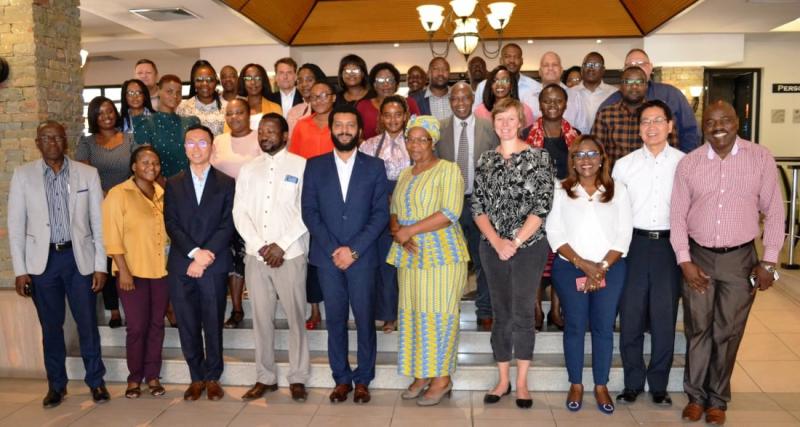
Namibia Conducts Resource Mapping for Implementation of its National Action Plan for Health Security
November 12, 2019
African Region
Namibia
Namibia engaged in a resource mapping exercise in November to identify needs, gaps, resources and partners for implementation of its soon-to-be-launched National Action Plan for Health Security (NAPHS).
The exercise used the resource mapping (REMAP) tool developed by WHO. The tool helps to map health security projects that stakeholders and partners are supporting in the country in terms of financial and/or technical assistance. This allows policymakers to identify areas that need to be better supported, and where more investment of resources is needed for activities that have been prioritised in the NAPHS and other national plans.
The Namibia exercise marked the first time the REMAP tool has also been used to pinpoint targeted activities where partner technical assistance is necessary for NAPHS implementation. WHO is creating a Global Strategic Preparedness Network (GSPN) to coordinate the technical assistance that is provided to countries by public health institutes, technical agencies, foundations, academia, the private sector and others. Identifying the needs for technical assistance, as in the Namibia exercise, is crucial to ensuring that the assistance is provided when and where needed to implement the country’s NAPHS.
Namibia has remained committed to strengthening preparedness and health security. The Ministry of Health and Social Services (MoHSS) led the conduct of a Joint External Evaluation in 2016 and is in the process of finalising its multisectoral NAPHS with the support of WHO.
To advance implementation of the NAPHS, the MoHSS, with support of the WHO Strategic Partnership for IHR and Health Security (SPH), in close collaboration with the WHO Regional Office for Africa and the WHO Country Office in Namibia, engaged in the resource mapping exercise in the Namibian capital of Windhoek from 12 to 14 November 2019.
The successful REMAP workshop brought together multiple departments within the Ministry of Health and Social Services, other government stakeholders such as the Ministry of Agriculture, Water and Forestry, the Foreign Relations Office and the City of Windhoek; institutions such as universities and the National Commission on Research, Science and Technology; UN agencies; and other development partners working in the country. The workshop provided clarity on activities in the NAPHS that would benefit from further support and initiated important dialogues on potential collaborations across partners and agencies.
Moving forward, Namibia, WHO and other partners will continue to work on closing critical gaps and mobilising resources for the implementation of its NAPHS. WHO will provide continuing support to the Ministry of Health and Social Services on the use of the REMAP tool, which the country can use to track implementation of the NAPHS as well as its Hepatitis E plan created in response to an ongoing outbreak. The country can also use the REMAP tool, with support of WHO, to regularly update mapping of the health security activities in Namibia and identify areas for potential collaboration with partners.